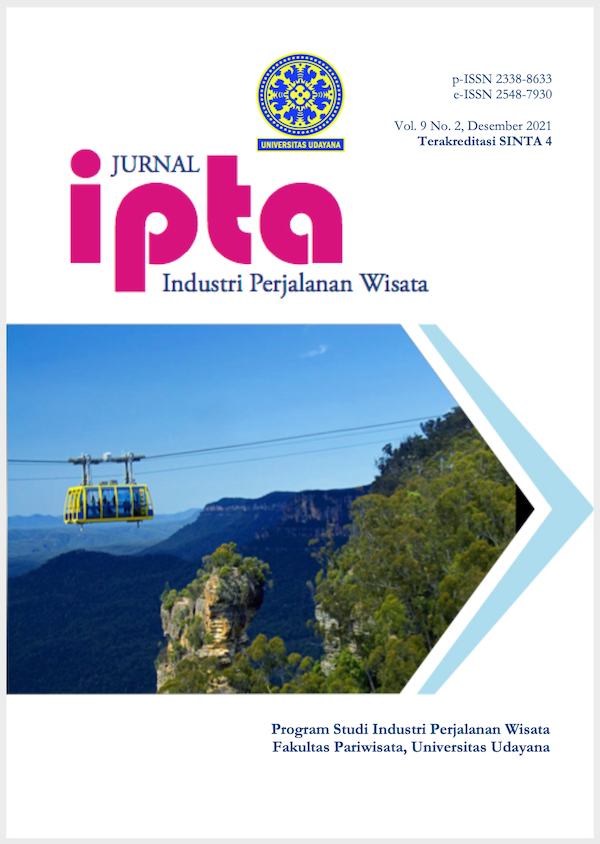LEGAL CHALLENGES AND REGULATIONS OF TRAVELOKA AS A TOURISM BUSINESS TO PAYLATER APPLICATIONS
Abstract
This study aims to identify Paylater's position in payments between tourists visiting Bali and the Traveloka as a tourism business, the legal relationship between Paylater consumers and Traveloka and payment practices with Traveloka Paylater facilities. On that basis, it was deemed necessary to conduct research on the legal challenges and opportunities of using Paylater in consumer transactions with Traveloka. The research conducted was normative legal research. Researchers used data collection tools in the form of a literature study or document study by examining OJK Regulation Number 77/POJK.01/2016. Traveloka's position in implementing Paylater can be seen in three aspects, namely: In electronic transactions, namely as an issuer (Article 1 number 6) where the issuer is a bank and an institution other than a bank. Financial Technology, Traveloka Paylater provides online agreements with its consumers. Consumer Financing, namely as a creditor who provides financing to the debtor in this case is the consumer. In the implementation of Paylater, the legal relationship that exists between Traveloka and the user is: The legal relationship of the agreement, where Traveloka is the provider of funds, while the user is the party using the funds with the payment agreement made on credit. The legal relationship of financing, namely Traveloka as a financing company and the users are the customers. The relationship between business actors, where Traveloka as a business actor is entitled to receive his rights through a business agreement made with the user.
Downloads
References
Amiruddindan Zainal, Asikin. Pengantar Metode Penelitian Hukum, Jakarta: Raja Grafindo Persada, 2006.
Gazali, S dan Djoni dan Rachmadi Usman. Hukum Perbankan, Jakarta: Sinar Grafika, 2012.
Hidayat, Ahmad. Upaya Meningkatkan Penggunaan Alat Pembayaran Non Tunai Melalui Pengembangan E-Money. Working Paper, 2006.
Hidayati, Siti, dkk. Kajian Operasional E-money, Jakarta: Bank Indonesia, 2006 Iswardono S.P. Uang dan Bank, Yogyakarta: BPFE, 2004.
Latumaerissa, Julius R. Bank dan Lembaga Keuanagan Lainnya, Jakarta: Selemba Empat, 2011.
Marzuki, Peter Mahmud. Penelitian Hukum Jakarta: Prenanda Media Group, 2013 .
Serfianto, dkk. Untung Dengan Kartu Kredit, Kartu ATM Debit, & Uang Elektronik, Jakarta: Visi Media, 2012.
Soekanto, Soerjonodan Sri Mamudji. Penelitian Hukum Normatif Suatu Tinjauan Singkat, Jakarta: Rajawali Press. 2013.
Sri Hartono, Rejeki. Hukum Perlindungan Konsumen, Bandung: Mandar Maju, 2000.
Undang- undang Republik Indonesia Nomor 7 Tahun 2011 Tentang Mata Uang Undang- undang Nomor 8 tahun 199 tentang Perlindungan Konsumen.
Undang-undang Nomor 19 Tahun 2016 Tentang Perubahan Atas Undang- undang Nomor 11 Tahun 2008 Tentang Informasi dan Transaksi Elektronik.

This work is licensed under a Creative Commons Attribution-ShareAlike 4.0 International License.





